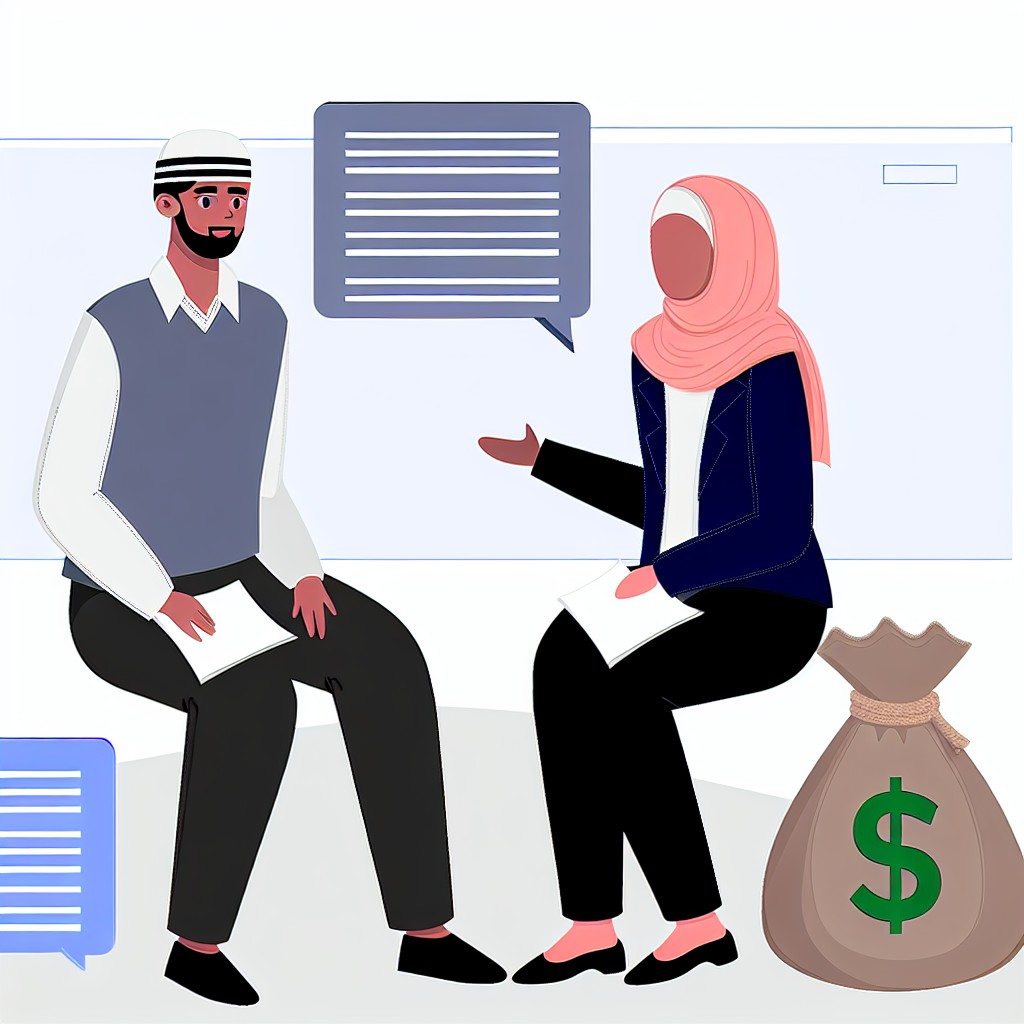Understanding the Basics of Mortgages for First-Time Buyers
What is a Mortgage?
A mortgage is a loan specifically for purchasing real estate.
It uses the property as collateral for the loan amount.
As you repay the loan, you gain equity in the property.
The Importance of Credit Scores
Your credit score plays a critical role in mortgage approval.
A higher score can lead to lower interest rates.
Take steps to improve your score before applying.
Types of Mortgages
There are several mortgage options available to buyers.
- Fixed-rate mortgages offer consistent monthly payments.
- Adjustable-rate mortgages (ARMs) start lower but can fluctuate.
- Government-backed loans can help low-income borrowers.
Understanding Down Payments
Down payments are initial payments made toward your home purchase.
Many lenders require a percentage of the home’s price as a down payment.
Programs exist that allow for low or no down payment options.
Additional Costs to Consider
Mortgage payments include more than just the loan amount.
Be aware of property taxes and homeowners insurance costs.
Don’t forget about closing costs, which can accumulate quickly.
Choosing the Right Lender for Your Needs
Choosing the right lender can ease the mortgage process.
Compare multiple lenders to find favorable terms.
Look for those who specialize in low-income homebuyer programs.
Exploring Low-Income Homebuyer Assistance Programs
Understanding Assistance Programs
Various programs exist to support low-income homebuyers.
These programs aim to make homeownership more accessible.
They often include grants, low-interest loans, and down payment assistance.
Additionally, they may provide guidance throughout the buying process.
Types of Programs Available
Many federal and state agencies offer assistance options.
The Home Affordable Modification Program adjusts mortgage terms for affordability.
The Federal Housing Administration provides loans with lower down payments.
USDA Rural Development focuses on homes in designated rural areas.
State housing finance agencies also offer various aid options.
Eligibility Requirements
Eligibility often depends on income level and household size.
Many programs require applicants to be first-time homebuyers.
Some target specific groups, like veterans or seniors.
Potential buyers must also demonstrate creditworthiness.
Proof of employment and income stability might be necessary.
Finding Local Assistance Programs
Researching local resources is vital for potential homebuyers.
Community organizations often have specific knowledge of local programs.
Your state’s housing agency can provide valuable information as well.
Additionally, local banks may offer specialized products for low-income buyers.
Online resources can help connect you with relevant programs.
Applying for Assistance
The application process can vary by program and agency.
Start by gathering necessary documents, such as pay stubs and tax returns.
Next, complete the application accurately and promptly.
Don’t hesitate to ask for help from housing counselors if needed.
Finally, follow up on your application status to stay informed.
How to Improve Your Credit Score Before Applying for a Mortgage
Understand Your Current Credit Situation
Start by obtaining a copy of your credit report.
Check for any inaccuracies that may lower your score.
Consider using a trusted service to review your credit report.
This helps you understand areas that need improvement.
Pay Your Bills on Time
Payment history significantly impacts your credit score.
Set reminders or automate payments for all bills.
Even one late payment can harm your score.
Try to avoid any missed payments, especially leading up to your mortgage application.
Reduce Your Debt Load
Focus on paying down existing debt before applying for a mortgage.
Make a plan to decrease credit card balances significantly.
Keep your credit utilization ratio below 30% if possible.
Lowering your debt shows lenders you are financially responsible.
Avoid Opening New Credit Accounts
New credit inquiries can temporarily decrease your score.
Refrain from applying for new credit cards before your mortgage application.
Opening new accounts can suggest financial distress.
Consider a Secured Credit Card
If your credit score needs significant improvement, consider this option.
A secured credit card requires a deposit that acts as your credit limit.
Use it responsibly to build or rebuild your credit history.
Ensure the card reports to major credit bureaus.
Keep Old Accounts Open
Your credit history length impacts your score positively.
Keep old credit accounts active, even if you rarely use them.
A longer credit history can improve your credit score.
Monitor Your Credit Regularly
Regularly checking your credit score keeps you informed.
Use free tools and apps that provide credit score updates.
Monitoring helps you track progress and stay disciplined.
Stay proactive to maintain a healthy credit profile.
Delve into the Subject: Mortgage Tips for Veterans Buying a Home
The Importance of Budgeting and Saving for a Down Payment
Understanding Budgeting
Budgeting serves as the foundation for financial stability.
It helps you track your income and expenses effectively.
Start by listing all your sources of income.
Then, document your monthly expenses.
Identifying necessary and discretionary spending is crucial.
By analyzing your spending habits, you can adjust accordingly.
Furthermore, budgeting allows you to allocate funds for savings.
Setting Savings Goals
Establishing clear savings goals gives you direction.
Consider how much you need for a down payment.
A common target is 20% of the home’s purchase price.
However, some loans require as little as 3% down.
Determine a realistic timeline for achieving your goal.
This will help you stay motivated and focused.
Building Your Savings Plan
Create a dedicated savings account for your down payment.
This separates your housing funds from everyday expenses.
Automate your savings by setting up regular transfers.
Even small amounts add up over time.
Look for ways to reduce spending to increase savings.
Consider the 50/30/20 rule for budgeting.
- 50% for needs
- 30% for wants
- 20% for savings and debts
Exploring Additional Resources
Investigate local programs that assist first-time homebuyers.
Some organizations offer grants for down payments.
Others provide low-interest loans to qualified buyers.
Additionally, search for financial education workshops.
These can provide valuable budgeting and saving strategies.
Networking with other homebuyers can also offer support.
Maintaining and Adjusting Your Budget Over Time
Reflect on your budget periodically to ensure effectiveness.
Adjust your plan as your financial situation changes.
Look for areas where you can cut costs further.
Stay informed about any changes in housing markets.
Being proactive can help you reach your goals sooner.
See Related Content: Mortgage Tips for Homebuyers With Student Loans
Types of Mortgages Available for Low-Income Buyers
Government-Backed Loans
Government-backed loans offer great options for low-income buyers.
Programs like FHA loans help reduce the down payment required.
These loans also accommodate lower credit scores.
USDA loans are available for rural homebuyers with modest incomes.
VA loans assist veterans and active military personnel purchasing homes.
Conventional Loans
Conventional loans can be an option for some low-income buyers.
These loans typically require a higher credit score than government loans.
However, some lenders offer programs tailored to low-income applicants.
It is crucial to shop around for favorable terms and competitive interest rates.
Adjustable-Rate Mortgages
Adjustable-rate mortgages (ARMs) might provide lower initial rates.
These loans can suit buyers who plan to move or refinance soon.
However, potential rate increases must be considered.
Understanding the terms can help avoid financial strain in the future.
Local and State Programs
Many states offer mortgage programs targeting low-income families.
These programs often provide down payment assistance and favorable interest rates.
Check with local housing authorities for available resources.
Taking advantage of these options can make homeownership more accessible.
Delve into the Subject: Optimizing Debt-To-Income Ratios To Better Boost Mortgage Approval Chances

Navigating the Mortgage Application Process
Preparing Your Documentation
Gather essential documents before you start your mortgage application.
This includes your income statements.
Also include your bank statements.
Include your tax returns as well.
Additionally, have your identification ready.
Prepare proof of residency as part of your documents.
Organizing these documents helps streamline the application process.
Understanding Credit Scores
Your credit score plays a crucial role in the mortgage application.
Check your score beforehand to know where you stand.
A higher score often leads to better mortgage offers.
If your score is low, consider strategies to improve it.
Such strategies could include paying down debt.
Make timely payments to boost your credit score.
Researching Mortgage Options
Explore various mortgage options suited for low-income homebuyers.
Government programs may offer favorable terms for your situation.
Look into FHA loans as a potential option.
USDA loans could also be suitable for your needs.
Compare interest rates across different lenders.
Evaluate the terms offered by various mortgage providers.
Working with a Mortgage Broker
A mortgage broker can provide valuable assistance throughout your journey.
They help you find suitable lenders who meet your needs.
Moreover, brokers negotiate terms on your behalf.
Choose a broker experienced with low-income clients.
Submitting Your Application
Once you select a lender, it is time to submit your application.
Ensure all your documentation is complete.
Verify that all information provided is accurate.
This preparation helps prevent processing delays.
Understanding the Approval Process
After submission, the lender reviews your application and documents.
This review usually includes a credit assessment.
The lender also arranges a property appraisal.
Be ready to answer any additional questions from the lender.
Steps Involved in Closing Your Mortgage
Upon approval, you will move toward closing on your mortgage.
This step includes signing necessary paperwork.
You will also be involved in disbursing funds.
Understand all fees associated with the closing process.
Review documents thoroughly before signing to avoid surprises.
Uncover the Details: Navigating Adjustable Rate Mortgages With Confidence And Clear Financial Goals
The Benefits of Working with a Real Estate Agent Familiar with Low-Income Housing
Access to Affordable Housing Options
A specialized real estate agent can identify low-income housing opportunities.
They stay informed about government programs and financing options.
This access enhances your ability to find affordable homes.
Consequently, you can explore more options within your budget.
Navigating Complex Processes
Buying a home involves many steps and paperwork.
An experienced agent simplifies these processes for you.
They help you understand necessary documentation and requirements.
This guidance can reduce your stress during the home-buying journey.
Negotiation Skills
Agents experienced in low-income housing have strong negotiation skills.
They advocate for your interests with sellers and lenders.
This can lead to better sale prices and favorable contract terms.
As a result, you save money in the long run.
Community Insights
Knowledgeable agents provide valuable information about neighborhoods.
They can highlight community resources and amenities.
This insight helps you choose the right location for your family.
Additionally, they can connect you with local support services.
Long-Term Support and Resources
Even after your purchase, a good agent remains a resource.
They can assist you with future real estate needs or refinancing.
This ongoing support can facilitate future property investments.
Ultimately, having a trusted agent is invaluable for your home ownership journey.
Common Pitfalls to Avoid When Seeking a Mortgage as a Low-Income Buyer
Overlooking Credit Report Errors
Many low-income buyers forget to check their credit reports regularly.
Errors can significantly impact loan approval and terms.
Reviewing your report can help you catch mistakes early.
Consider disputing any discrepancies with the credit bureau.
By addressing issues promptly, you can improve your credit score.
Not Shopping Around for Lenders
Failing to compare multiple lenders can be a costly mistake.
Diverse lenders often have varying interest rates and fees.
Gather quotes from several sources to find the best deal.
Remember to consider credit unions and local banks as options.
They may offer favorable terms for low-income buyers.
Ignoring Pre-Approval Benefits
Some buyers overlook the advantages of mortgage pre-approval.
Pre-approval can give you a clear budget when shopping for homes.
Additionally, it shows sellers you are a serious buyer.
They may be more willing to negotiate with an approved candidate.
Start this process early to avoid delays when making offers.
Underestimating Additional Costs
Buyers often focus solely on the mortgage payment.
However, homeownership includes additional costs beyond the mortgage.
These can include property taxes, insurance, and maintenance fees.
Budgeting for these expenses helps prevent financial strain.
Consider setting aside funds for emergencies and upkeep.
Falling for Predatory Loans
Low-income buyers should be cautious of predatory lenders.
These lenders often prey on vulnerable homeowners with high rates.
Research thoroughly before signing any agreements.
Look for lenders who are transparent about terms and fees.
Consult with a housing counselor for guidance on loan options.
Failing to Calculate Affordability
Many buyers underestimate their monthly housing costs.
It’s essential to evaluate your budget accurately.
Include all potential expenses in your calculations.
Ensure you can comfortably afford your mortgage payments.
Strive for a balance between your monthly income and expenses.
Additional Resources
NCHFA: Creating Affordable Housing Opportunities for North …




